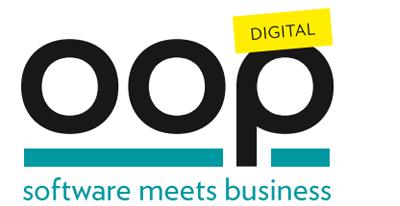Please note:
On this page you will only see the English-language presentations of the conference. You can find all conference sessions, including the German speaking ones, here.
The times given in the conference program of OOP 2023 Digital correspond to Central European Time (CET).
By clicking on "VORTRAG MERKEN" within the lecture descriptions you can arrange your own schedule. You can view your schedule at any time using the icon in the upper right corner.
Thema: Technical Debt
- Montag
06.02. - Dienstag
07.02. - Mittwoch
08.02. - Donnerstag
09.02.
Approval testing is a technique that helps you to get a difficult codebase under test and begin to control your technical debt. Approval testing works best on larger pieces of code where you want to test for multiple things and interpreting failures is challenging.
In this hands-on session we'll introduce a commonly-used Approval testing tool for Java and through hands-on exercises learn to get control of some example code. The same tool is also available for many other programming languages,…
For a technology company, building a strong engineering culture is essential for long-term success. Today's software industry is growing so fast that a large proportion of developers will inevitably have less than 5 years experience. At the same time, many software systems contain code that is ten, twenty or even thirty years old.
It's a constant challenge to communicate a healthy culture to newcomers and prevent technical debt from getting out of control. Technical coaching is all about…
"Ich hatte keine Zeit, den Zaun zu flicken" - Dieses Zitat kennt wohl jeder, und doch ertappen wir uns selbst, unseren Zaun nicht geflickt, sondern stattdessen die Hühner gesucht zu haben.
Doch wie ändere ich das?
Dieser Vortrag zeigt mit dem Konzept der MLCs ein Tool auf, dieser Falle zu begegnen und sich selbst und andere in den Modus des kontinuierlichen Lernens zu versetzen.
Am Ende haben die Zuhörenden einen ersten MLC durchlaufen und ein Tool erlernt, um sich und anderen den Freiraum zum…
Discipline, determination, a highly visible area, and a few sticky notes, are all you need to move beyond problems with technical debt.
Target Audience: Developers, Project Leader, Designers, Product Owners, Decision Makers
Prerequisites: Basic Knowledge of Software Development Process
Level: Basic
Extended Abstract:
## Making great software is challenging
It doesn't matter how qualified a team is, it will never be able to produce perfect, flawless, entirely bug-free software.
While teams are…
Even in the time of agile software development and devOps, maintenance and evolution of large-scale software systems remain challenging. This is not only caused by technical debt, but is heavily caused by lost knowledge, high complexity of micro-service architectures, difficult requirements management, not available documentation, and the complexity of communication among and coordination of the many stakeholders. In our session we will talk about the challenges we identified in our study and…
You know the story, one dev in the team found out about this amazing new framework which will solve potentially aaaall your problems; but the product owner stops him right away. There is definitely no time until the next roadmap milestone is reached and you’re already late. We have introduced the tool Tech Radar – in two different organisational setups – to make technology strategy explicit.
In this talk I’ll share our learnings on how we made sure our teams don’t drown in legacy, train them on…

